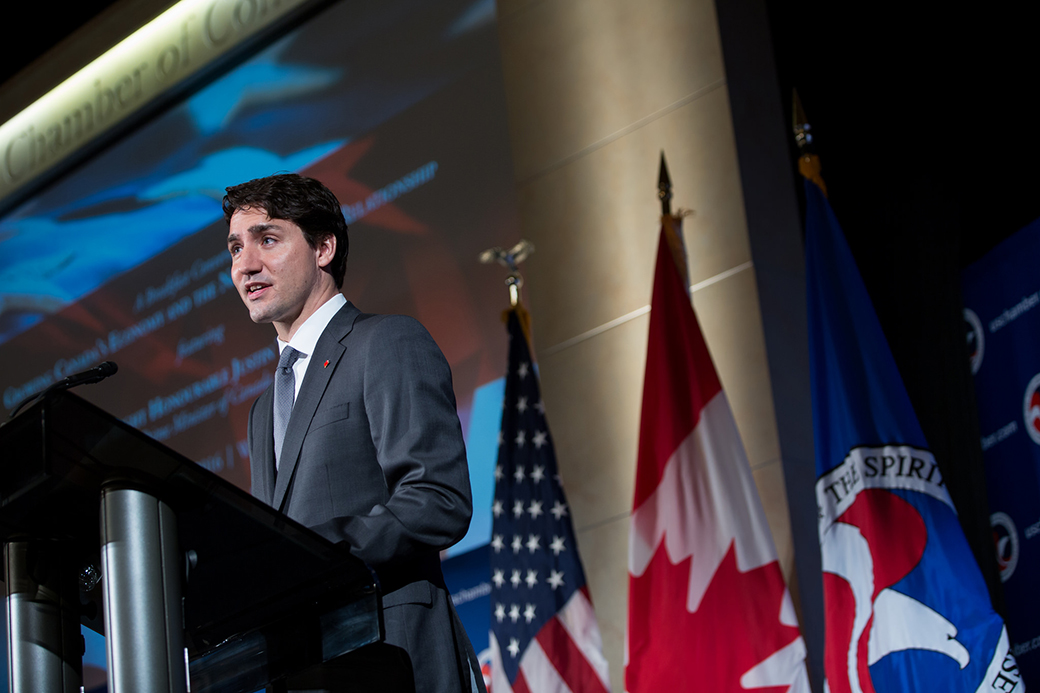While President Donald Trump and Prime Minister Justin Trudeau may seem like political opposites they do share at least one common goal — approval of the TransCanada 830,000 barrel per day Keystone XL tar sands pipeline.
In October 2013, when Trudeau visited Washington as a Montreal MP he said that he supports TransCanada’s proposed pipeline that would carry crude oil from Alberta to refineries on the Gulf Coast because it would be “good” for Canada and U.S. He added that his position may surprise some, the CBC reported.
“My support for Keystone is steadfast. …The fact that I’d be talking positively about the project I think got people thinking about the fact that perhaps it’s not as bad as it’s been caricatured,” said Trudeau.
When President Barack Obama rejected the pipeline in November 2015, Trudeau responded that he was disappointed by the decision but respects the right of the United States to make that choice.
Last May Trump said that he would approve the pipeline proposal if electing, reversing a decision by the administration of President Barack Obama to block it due to environmental concerns.
“I would absolutely approve it, 100 per cent, but I would want a better deal. I want it built, but I want a piece of the profits. That’s how we’re going to make our country rich again,” Trump said.
And now, just hours after Trump’s win was confirmed at around 3 a.m. Wednesday morning, the Canadian Press reported, “TransCanada Corp. says it’s evaluating ways to engage the newly elected Donald Trump administration on the potential benefits of the Keystone XL pipeline. Company spokesman Mark Cooper said Wednesday that TransCanada remains fully committed to building the controversial project that U.S. President Barack Obama rejected last year.”
Filling the Keystone XL pipeline with tar sands crude would facilitate a 36 per cent increase in current tar sands production and increase greenhouse gas emissions by an estimated 22 million tonnes a year.
The 1,897-kilometre pipeline from Hardisty, Alberta to Houston, Texas would also — just like the Dakota Access Pipeline — cross numerous waterways and put drinking water at risk.
The Council of Canadians travelled to Washington numerous times to join protests against the pipeline, including calling on the Canadian embassy in August 2011 to demand that they stop lobbying for the pipeline. The council also participated in the Surround the White House action in November 2011, and the Forward on Climate protest in February 2013.
We will work with our American and Indigenous allies in the United States to ensure that the Keystone XL pipeline is never built.
Chip in to keep stories like these coming.
Image: PMO/Adam Scotti



